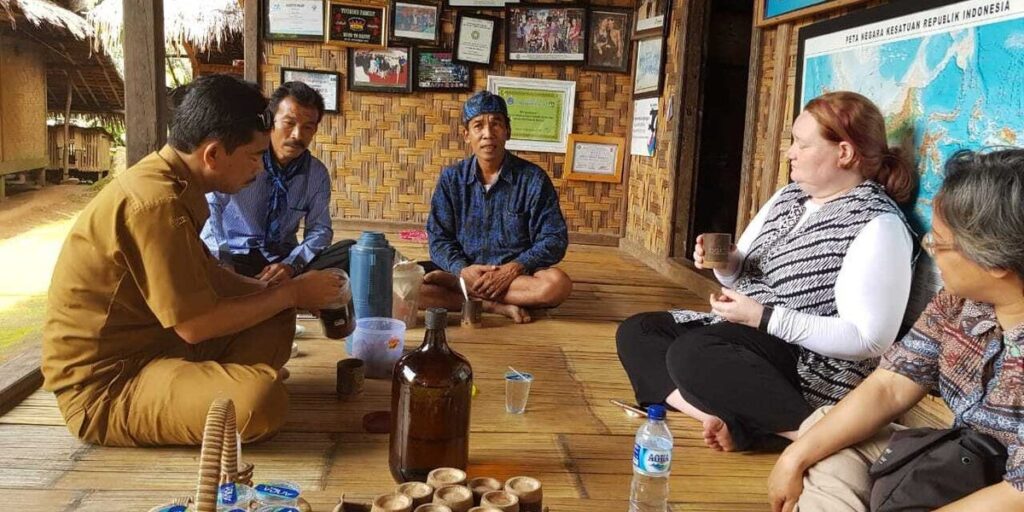I was introduced to the concept of public health in the early 90s when a childhood friend was living with AIDS, and I took classes to learn more. My eyes were opened to how public health can transform communities and countries.
For more than 25 years, I’ve worked to support US foreign assistance in global public health — most recently for DAI, one of USAID’s largest contractors. Through my work, I’ve witnessed firsthand how American foreign assistance has transformed lives abroad while making our nation safer and stronger at home.
Now, USAID is in a transitional moment; what’s next remains to be seen. Due to the current administration’s halts on foreign assistance, our work at DAI has been paused. I’m currently furloughed, along with my entire team and hundreds of colleagues, with very little notice. I lost my paycheck January 31 and my health insurance March 31. USAID has officially canceled the life-saving programs I previously worked with — promoting surveillance of infectious diseases, coordinating responses to pandemic threats across countries, and ensuring life-saving medicines reach communities who desperately need them.
This administration’s approach to USAID isn’t just concerning — it reflects a fundamental misunderstanding of what American soft power achieves in the world.
By helping other countries, we make the US safer
USAID, the government agency that delivers foreign assistance, was enacted in law in 1961 under JFK — at the time, to counter the image of the ugly American and help the world learn to trust Americans more. Over the decades since, the agency has garnered strong bipartisan support; both Democratic and Republican presidents understood that American influence flows not just from our military might but from our ability to build partnerships based on mutual benefit and respect.
Through my work, I’ve coordinated with the US Department of Defense to increase access to HIV testing and treatment in Botswana, with both US and Botswana funding. I’ve sat with women in Afghanistan — where women cannot be treated by male doctors — who received life-saving healthcare because USAID invested in training female health providers. I’ve watched state governments in northern Nigeria, in territories threatened by Boko Haram, allocate their own resources to complement US investments in youth programs.
These aren’t abstract policy successes; they’re human stories of improved lives overseas that create allies and directly enhance American security. When young people and local governments in volatile regions trust the US instead of terrorist organizations, we all sleep safer. When health systems in developing nations can detect and contain disease outbreaks, we prevent pandemics from reaching our shores. This isn’t charity; it’s strategic foresight.
Here in North Carolina, the impacts hit close to home.
Our state receives the fourth-largest allocation of USAID funds nationwide, creating thousands of jobs for North Carolinians. I’ve been to city council meetings across the triangle; people are frustrated. I’ve also spoken to scientists and farmers who are concerned about what the cuts will mean for agriculture in NC, as USAID supports vital research that benefits us as well as citizens in other countries.
Before the dismantling of USAID, the Republican administration promised a 90-day review of foreign assistance — a process I and my colleagues welcomed. We stood ready to engage in thoughtful discussion about reforming and strengthening foreign assistance. We began looking at how our programs aligned with the priorities in Project 2025 and the America First foreign policy agenda. We had meetings about each project and wrote fact sheets on how the work USAID was investing in made America more prosperous, secure, and safe.
We didn’t receive a request for this information until weeks after hasty judgments had already been made — based on cherry-picked and often refuted examples that inflame rather than inform. I’ve never encountered programs resembling those described in late-night tweets and campaign rallies. What I have seen is vital nutrition support for women and children in Zambia — a country rich in critical minerals — suddenly halted. As we withdraw, China and Russia eagerly step in, expanding their influence in regions of strategic importance to America.
We need to restore what works — and fix what doesn’t
My worry extends far beyond my personal paycheck — what really concerns me is that when we as Americans abandon the field of soft power, we cede ground to competitors and adversaries.
America needs to restore what works in foreign assistance while thoughtfully reforming what doesn’t: we need to better collaborate across sectors, we need to learn faster, and we need to streamline the bureaucracy to make it easier for local partners and not just American firms to implement this work. When countries have the ability to budget for and generate revenue to pay for their essential services, they are better as well as less dependent on foreign aid.
We need to stop inflammatory rhetoric that mischaracterizes the dedicated work of thousands of Americans and their international partners. We need our leaders to protect North Carolina jobs, American soft power, and our nation’s security interests by supporting effective foreign assistance.
I’ve spent 25 years watching American tax dollars create ripple effects of positive change throughout the world. With curiosity rather than judgment, we can ensure those investments continue to make America — and the world — safer and stronger.
Kirsten Weeks is a global health leader with 25+ years of experience.

